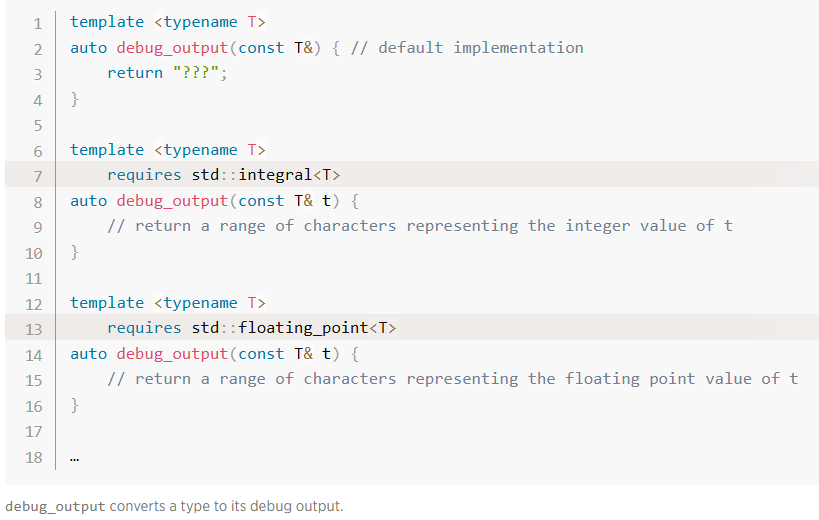Having Fun with Modern C++ -- Daniel Lemire
 Recent versions of the C++ language (C++20 and C++23) may allow you to change drastically how you program in C++. I want to provide some fun examples.
Recent versions of the C++ language (C++20 and C++23) may allow you to change drastically how you program in C++. I want to provide some fun examples.
Having Fun with Modern C++
by Daniel Lemire
From the article:
Thanks to the integration of the features from the popular fmt library, it is much easier to format strings elegantly in C++. In turn the fmt library was inspired by the work done in languages like Python.
Suppose that you have a vector of integers and you want to print its content:
std::vector<int> v = {1, 2, 3, 4, 5}; std::println("{}", v);
Suppose you want it to be centered in a line of 40 characters, with underscore characters around it:
std::vector<int> v = {1, 2, 3, 4, 5}; std::println("{:_^40}", v); // ____________[1, 2, 3, 4, 5]_____________

 Last week, I got the chance to go to Berlin and participate in the 10th edition of Meeting C++ which is as far as I know the biggest C++ conference in Europe. Considering both the online and onsite participants, there were about 500 of us, eager to learn more mostly but not only about C++.
Last week, I got the chance to go to Berlin and participate in the 10th edition of Meeting C++ which is as far as I know the biggest C++ conference in Europe. Considering both the online and onsite participants, there were about 500 of us, eager to learn more mostly but not only about C++. Programming at compile time has been possible in C++ for a long time. Wu Yongwei considers its past, present and future.
Programming at compile time has been possible in C++ for a long time. Wu Yongwei considers its past, present and future. Probably the two most useful features added to C++20 are
Probably the two most useful features added to C++20 are 
 One of the reasons that I’m excited for Reflection in C++ is that it can permit you to implement, as a library, many things that previously required language features. In this post, I’m going to walk through implementing P2786R8 (“Trivial Relocatability For C++26”).
One of the reasons that I’m excited for Reflection in C++ is that it can permit you to implement, as a library, many things that previously required language features. In this post, I’m going to walk through implementing P2786R8 (“Trivial Relocatability For C++26”). A post I wrote back in 2023
A post I wrote back in 2023